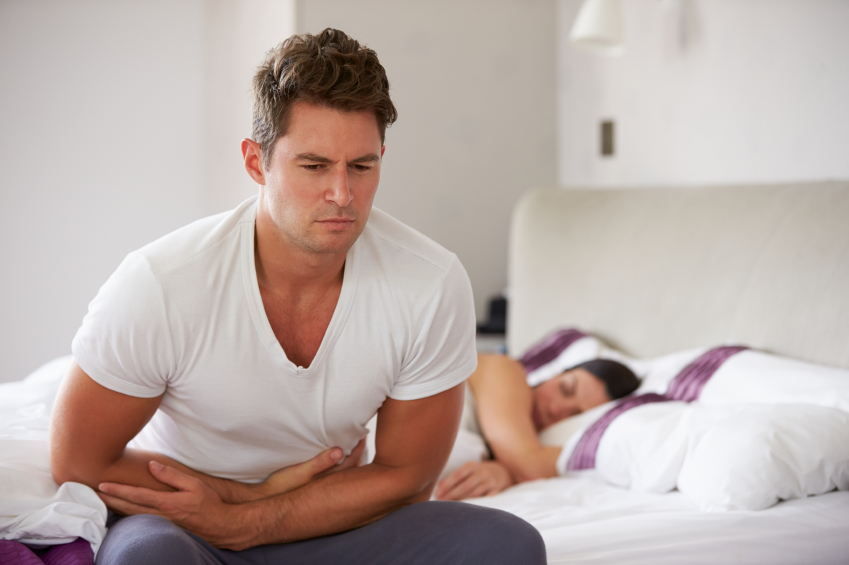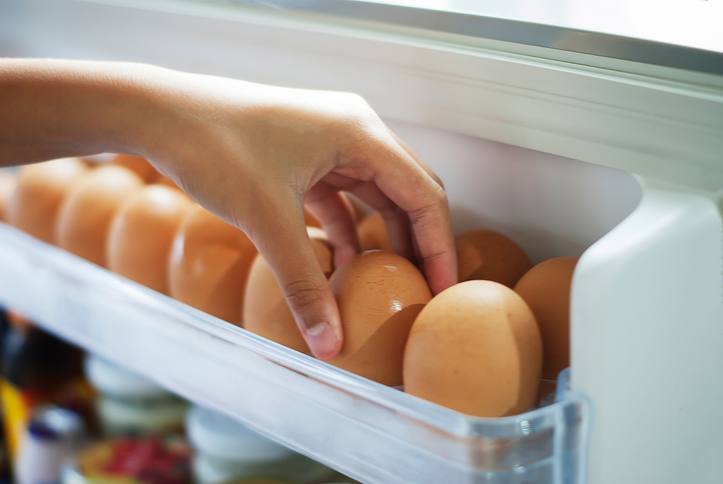You know the symptoms, you’ve heard the horror stories, and chances are you or someone you know has dealt with food poisoning at some point.

If you’ve gone your whole life without getting a foodborne illness, then you probably fall into three categories:
- You’re very lucky;
- You are an expert at eliminating bacteria and other germs from your food;
- Or you never eat any of the following foods.
A few foods that cause food poisoning
1. Berries
All berry types are high-risk foods that cause food poisoning. They can harbor hepatitis A and various bacteria, such as cyclosporine and listeria. Plus, the thin skin hardly protects the flesh inside, and most people eat the entire fruit.
2. Cantaloupe
All ground-grown melons can house listeria and salmonella on the rind, which can spread to the flesh. A cantaloupe’s rough skin provides the perfect hiding place for bacteria.
3. Deli meats
Any cut of meat that isn’t properly prepared can make you sick, but deli meats are especially high-risk. The processing can introduce microorganisms, and unsanitary deli counter practices increase the risk of food poisoning.
4. Eggs

We should all know by now that eggs are fertile breeding grounds for foodborne germs. Salmonella can grow on the shell and the inside.
5. Leafy greens
You run a risk with all vegetables, but especially leafy greens. The deep folds and dense vegetation in iceberg lettuce, kale, and romaine are perfect hiding places for bacteria.
6. Oysters
Oysters, clams, mussels, scallops — if they come from dirty water, there’s a good chance they’re teeming with norovirus and other nasty micro-organisms.
7. Peanut butter
The lunchtime sandwich staple seems safe, but its a one of the high-risk foods that cause food poisoning. It can harbor salmonella, which is one of the reasons peanut butter always seems to cause foodborne illnesses.
8. Poultry
Just like eggs, it should be common knowledge that poultry is a fertile breeding ground for microorganisms. Campylobacter and salmonella can grow on the feathers and in the guts, and each bacteria survives until the meat is cooked to the right temperature.
9. Potatoes
Anything that grows on or in the ground, such as potatoes, is a potential food poisoning candidate. Your sounds might harbor the botulinum bacteria that causes botulism.
10. Rice
Uncooked rice has the Bacillus cereus bacteria that can trigger food poisoning. Cooking won’t necessarily kill the bacteria, and it can quickly multiply if you leave the warm and moist rice on your stove.
11. Soft cheeses
We love a good brie and other soft cheeses, such as blue, camembert, and feta, served at room temperature. You know what else loves warm cheese? Any number of microorganisms that trigger food poisoning.
12. Sprouts
Bean sprouts need warm and damp conditions to grow. Want to guess what else loves that kind of environment? Bacteria such as E. coli, listeria, and salmonella. Whether you grow them yourself, buy them, or order them at a restaurant, eating sprouts increases your food poisoning risk.
13. Tomatoes
Salmonella from the soil can move through the roots, and other bacteria invade through small cracks in the thin skin.
14. Tuna
It’s not just tuna. All fish not stored at a proper temperature can harbor histamine, a bacteria byproduct, that won’t go away when you cook fish.
15. Unpasteurized dairy
Pasteurization kills microorganisms that can cause food poisoning, so it makes sense that consuming raw or unpasteurized dairy isn’t always a great idea.
How to prevent food poisoning

Eliminating your chance of getting sick from your food is next to impossible, but you can take some steps to decrease your risk.
- Wash your hands and utensils thoroughly, especially after handling raw meat.
- Speaking of raw meat, never wash it before you chop it or cook it. Washing it only spreads bacteria to other foods or areas in your kitchen.
- However, you should wash fresh produce, even if they are prepackaged.
- Use different cutting boards and knives for raw meat and other items.
- Cook meat thoroughly and store all food at safe temperatures, either below 40 degrees Fahrenheit or above 140.
- When dining out, know the warning signs that indicate your restaurant might make you sick.
What to do if you get sick
If and when you do get food poisoning, there are a few things you should do to help yourself fight through it, according to Healthline.
- Stay hydrated with water, sports drinks such as Gatorade, decaf tea, or chicken broth.
- Eat bland and easily digestible food, such as saltine crackers, bananas, Jell-O, or toast
- Don’t use over the counter medicine to treat vomiting or diarrhea, since drugs prevent your body from purging the toxins.
- Avoid caffeine, alcohol, fruit juices, dairy, and spicy foods.
Check out The Cheat Sheet on Facebook!
Source: Read Full Article